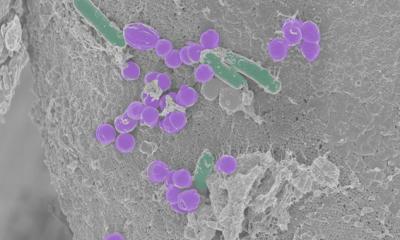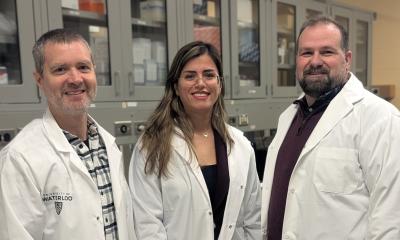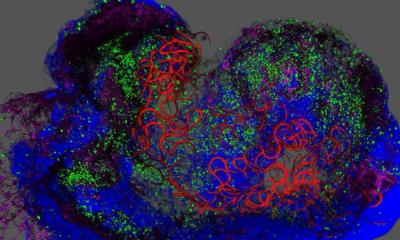ADHD
An utter shambles
Researchers at Goethe University have found out: Household chaos makes bringing up children with ADHD more difficult.

Researchers often observe inadequate parenting, a negative emotional climate and household chaos in families of children with ADHD. A research group at Goethe University Frankfurt and the universities of Bremen, Heidelberg, Tübingen and Kiel has now explored how these factors interrelate. The result is astounding.
“We assumed that the parents of children with ADHD found it difficult to maintain a structured family life and daily routines due to their children’s symptoms. In turn, household chaos has an adverse effect on emotional climate and parents’ behaviour”, explains Dr. Andrea Wirth, research associate at the Department of Educational Psychology of Goethe University Frankfurt.
The data of 84 children aged between 7 and 13 years was included in the study, of which 31 children were assigned to the ADHD group and 53 to the control group. Parental behaviour was assessed using a standardized questionnaire, which asked to what extent the parents looked after their children, praised or criticized them, how consistent they were in their parenting and whether they resorted to physical punishment. In order to document the emotional climate in the family, the psychologists asked one of the parents to talk about his or her child for five minutes and describe the child’s personality as well as his or her relationship to it. Household chaos was also recorded using a standardized test.
As expected, parenting by the parents of children with ADHD was less adequate, they criticized their children more often und reported more household chaos than the parents of the children in the control group. However and to the psychologists’ surprise, the parents of children with ADHD rated their relationship to their children more positively than the parents of children without ADHD. The researchers presume that a possible reason, amongst others, might be that some of the families involved were already undergoing therapy, since improvements in the parent-child relationship have already been proven both for interventions with medication as well as those based on behavioural therapy.
The exact relationship between the three constructs was examined with the help of statistical analyses (mediation analyses). “Household chaos seems to be some kind of mechanism through which the symptoms of children with ADHD have a negative impact on their parents’ behaviour towards them”, says Andrea Wirth. However, a chaotic environment does not appear to affect the emotional climate in the family. This contradicts earlier studies which had found a link between inadequate parenting and emotional climate. “A highly chaotic and unstructured household, to which the children’s ADHD symptoms are a contributing factor, makes it difficult for their parents to be authoritative in their upbringing. At the same time, it can be assumed that the parents - despite the prevailing chaos - are fond of their children, speak positively about them and enjoy spending time with them.”
The research group at the LOEWE centre IDeA, of which Andrea Wirth is a member, is drawing up recommendations for future research aimed at designing parent training which can help parents to plan family life better, establish fixed routines and rituals, and organize daily life more efficiently. These may include, for example, turning off the radio and the television when the child is doing its homework, leaving the room to make phone calls, only receiving guests at certain times and letting the child do its homework alone in a quiet room.
Source: Goethe-Universität Frankfurt am Main
15.03.2017





